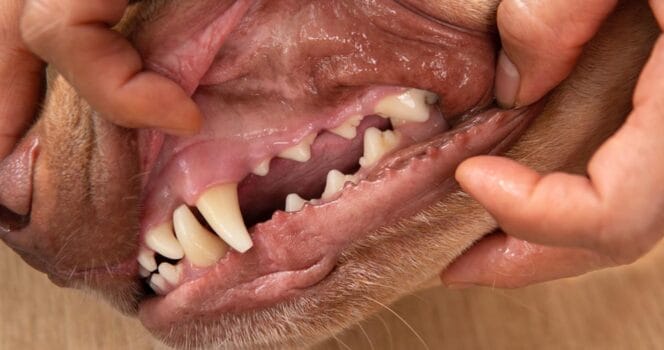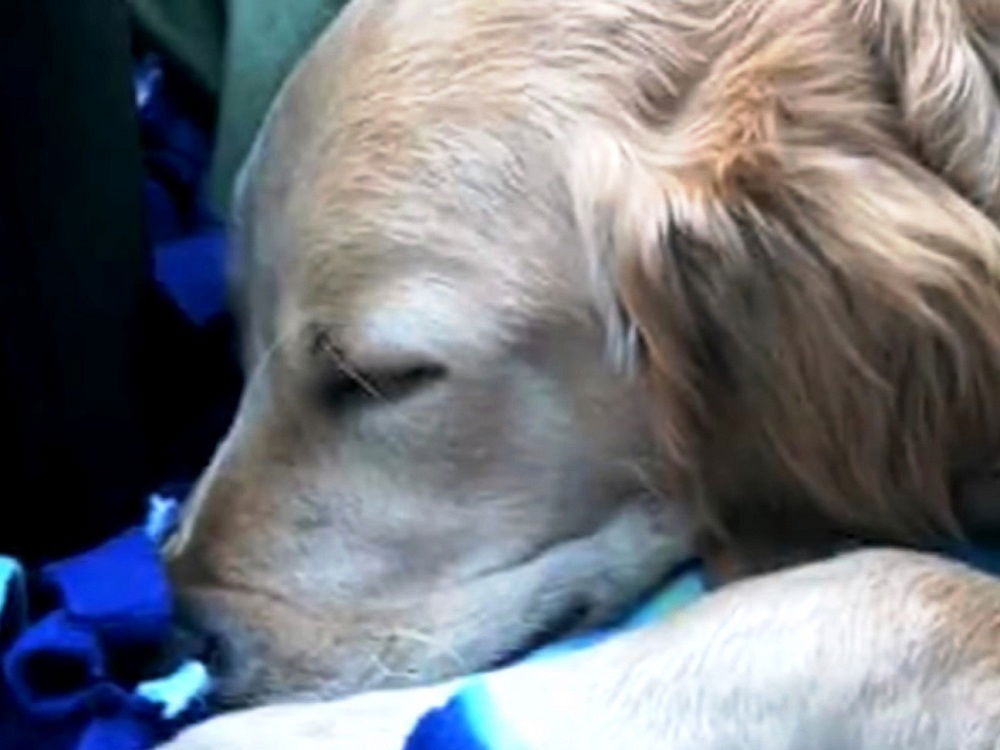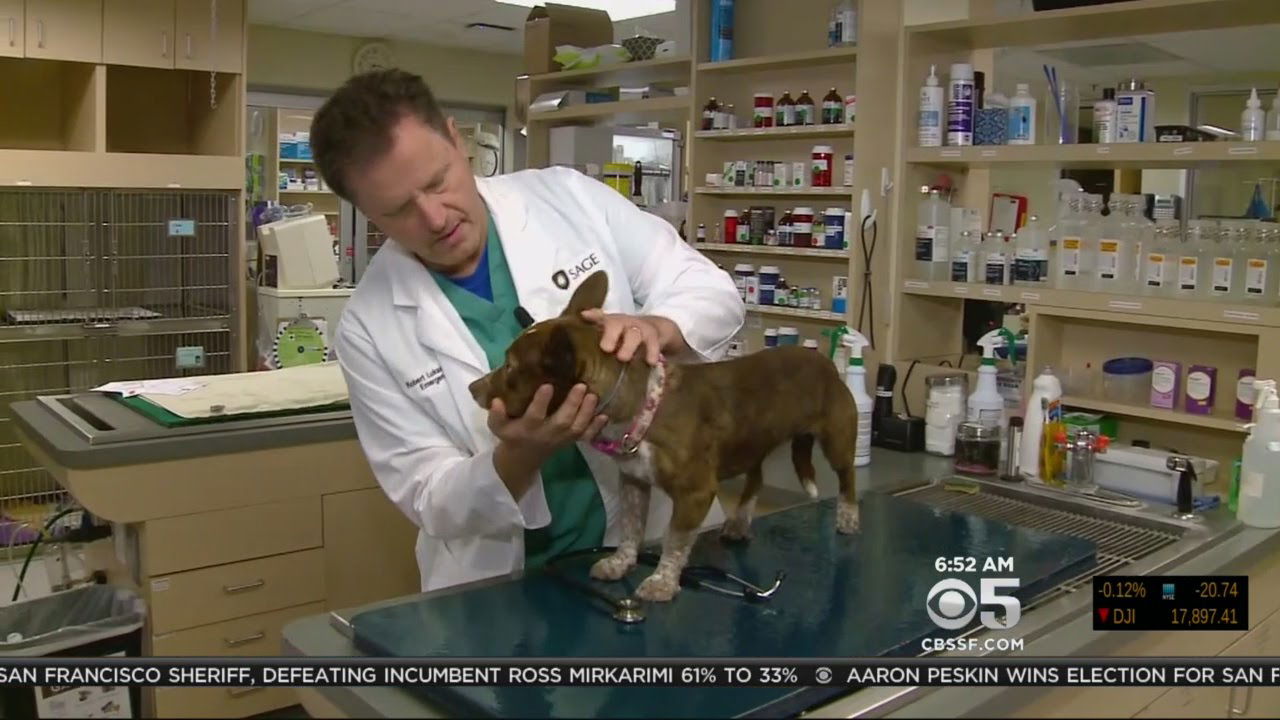Xylitol poisoning in dogs is a silent and deadly threat that many pet owners still don’t know about. It hides in everyday products we use at home, disguised behind labels and names that sound harmless. But for one family, the cost of this hidden danger was the life of their beloved dog, Luna.

When we welcome a pet into our home, it becomes part of our family. They fill our days with love, joy, and comfort, always there to greet us with wagging tails and warm hearts. Their presence becomes part of our daily routine, and their safety becomes our priority. But sometimes, danger comes from places we least expect, turning ordinary household items into silent killers.
Luna, a playful two-year-old Golden Retriever, was the heart of Samantha Carress’s home. She was loving, full of energy, and adored by everyone. Her loss was devastating for the entire family, especially because it could have been prevented. The tragedy that struck their home serves as a painful reminder of how a moment of unawareness can change everything.
As pet owners, we do our best to keep our furry friends safe. We choose the right food, take them on walks, keep harmful chemicals locked away, and make sure they feel loved every single day. But even the most caring and vigilant owners can miss something dangerous when it doesn’t look like a threat. That’s what happened to Samantha and her family.
Most dog owners know that chocolate and sweets are harmful to dogs. Chocolate contains caffeine and theobromine, both toxic to the system. When dogs eat chocolate, it can cause vomiting, diarrhea, rapid heartbeat, seizures, and even death if the amount is high enough. Many of us have learned this over time and are careful to keep sweets out of reach. Yet, there’s another ingredient that’s far more dangerous and often overlooked — Xylitol.

Samantha had heard about the dangers of chocolate, but she had no idea that sugar-free gum could be just as deadly. The product that took Luna’s life was something she thought was safe to have around the house: a pack of sugar-free Ice Breakers lemon-flavored chewing gum. That pack contained Xylitol, a sugar substitute found in many sugar-free products. For humans, it’s a harmless sweetener. For dogs, it’s toxic, even in tiny amounts.
One afternoon, while the family was away, Luna managed to get hold of the pack of gum. No one realized what had happened until it was too late. When Samantha returned home, Luna wasn’t acting like herself. She was weak, vomiting, and soon began to lose control of her body. They rushed her to the vet, desperate to save her, but the damage had already begun. Within hours, Luna’s liver was failing due to Xylitol poisoning in dogs.
The family did everything they could. They approved emergency treatment that cost $20,000, hoping that their beloved pet would survive. The doctors gave them a 25% chance, but Luna’s body couldn’t recover. In the end, they made the heartbreaking decision to let her go, freeing her from the pain she could no longer endure.
Luna’s loss shattered Samantha’s heart, but it also gave her a mission. She decided to share her story publicly to warn others about the dangers of Xylitol poisoning in dogs. She didn’t want any other pet owner to experience the same pain or guilt. Her message is simple: always check the ingredients in products around your home, and make sure your pets never come near anything that contains Xylitol.
So, what exactly makes Xylitol poisoning so deadly to dogs?

Xylitol is a sugar substitute used in many sugar-free foods and household products. It’s often found in chewing gum, mints, peanut butter, candies, baked goods, drink powders, and even condiments like ketchup or barbecue sauce. It’s safe for humans because our bodies process it differently. But for dogs, Xylitol triggers a rapid release of insulin, which causes their blood sugar levels to drop dangerously low. This condition, called hypoglycemia, can lead to seizures, liver failure, and death within hours of ingestion.
Even a small amount of Xylitol can be fatal to a dog. For example, a single stick of sugar-free gum could be enough to poison a small dog. The problem is that most pet owners don’t know this. Labels often don’t clearly warn about the danger to animals, and the sweetener can appear under different names in ingredient lists.
Over the last decade, reports of Xylitol poisoning in dogs have skyrocketed by nearly 3,000%. Veterinarians around the world have seen a sharp increase in emergency cases caused by products that were never meant for pets. Unfortunately, Luna’s story is not unique. Many dogs have died after eating sugar-free gum, peanut butter, or other products sweetened with Xylitol.
Samantha hopes that by speaking out, she can help reduce that number. Her story is now being shared by countless pet owners and animal organizations who want to raise awareness about this deadly risk. The truth is that many of us might have Xylitol-containing products in our homes right now without realizing it. That’s why it’s so important to read labels and store these items where your pets can’t reach them.

It’s easy to underestimate how curious dogs can be. They love to explore, chew, and taste things, even if they’re not food. What might look harmless to us could be irresistible to them. A pack of gum on a counter, a jar of peanut butter left open, or a few pieces of candy in a bag can become a fatal temptation. That’s why being aware of Xylitol poisoning in dogs is so crucial for every pet owner.
The symptoms of Xylitol poisoning appear quickly. Within minutes or hours, dogs can start vomiting, become weak, collapse, or have seizures. Without immediate medical attention, they can suffer liver failure. Time is critical in these situations. If you ever suspect your dog has eaten something with Xylitol, go to a veterinarian immediately. Early treatment can save their life.
Samantha’s tragedy reminds us how much our pets rely on us for safety. Luna didn’t understand what she was eating, and Samantha couldn’t have imagined that something as simple as gum could be fatal. This knowledge gap is what she’s determined to close by sharing her experience.
She now urges pet owners to keep products containing Xylitol locked away and to educate friends and family. Even visitors bringing snacks or gum into the house should be warned to keep them out of reach. A small precaution can make the difference between life and death.
Beyond gum and candy, Xylitol can appear in unexpected products. Some brands of toothpaste, mouthwash, vitamins, and baked goods also contain it. Always check ingredient labels before giving your dog anything new, especially if it’s made for human use. Remember, what’s healthy for you could be dangerous for them.
The story of Luna also reveals a powerful truth about love and responsibility. Owning a pet means committing to their well-being in every possible way. It’s about creating a safe space where they can live without hidden threats. Samantha’s grief turned into a mission to protect other dogs from suffering the same fate, and that mission starts with awareness.
Her message has reached thousands of people, and many have shared it to warn others. By spreading the word about Xylitol poisoning in dogs, we can prevent future tragedies and save lives. Every time someone learns about this danger, one more pet stands a better chance at safety.
It’s heartbreaking to think of Luna’s final moments, but her story has already made a difference. It’s opened the eyes of countless pet owners to a danger that often goes unnoticed. Through education and awareness, Luna’s legacy lives on.
If you love your pet, take a few minutes to check your home right now. Look through your kitchen, bathroom, and bags for any products that might contain Xylitol. Move them to a place your dog can’t access. Talk to your family and friends about the risks. And if you ever buy treats, make sure they’re made specifically for dogs and safe for consumption.
A small act of awareness can prevent immense pain. Samantha hopes that no one else will ever have to face what she did. Luna’s story might have ended tragically, but it can still save countless lives.
Let her memory remind us all that the smallest things can have the biggest impact. Protect your pets, stay informed, and never underestimate the power of awareness. Xylitol poisoning in dogs is preventable, and your knowledge could be the key to saving your best friend.
Rest in peace, Luna. Your story will continue to protect others and remind us that love, even through loss, can create lasting change.

